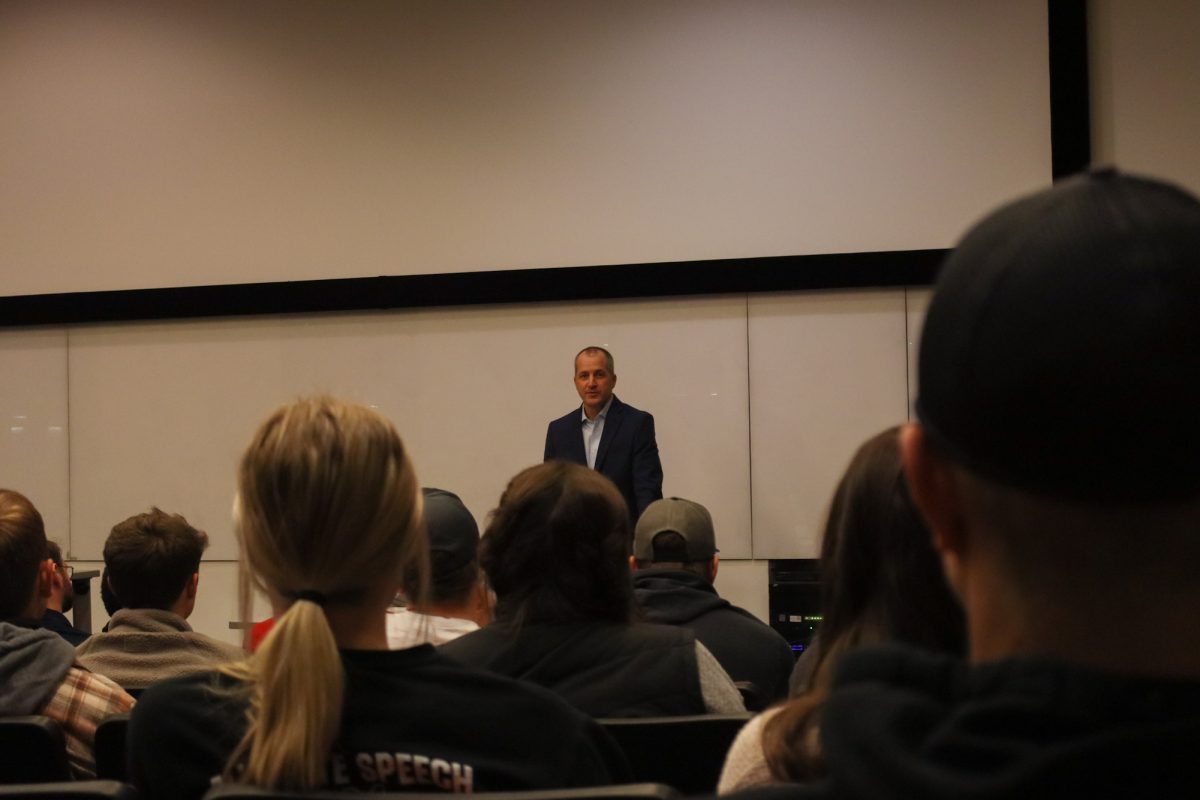Dr. Kevorkian is only a sideshow
June 24, 1996
Last Thursday, a modern-day legend continued to grow.
For the thirty-first time in six years, Dr. Jack Kevorkian assisted in a patient’s suicide.
And for the thirty-first time, the American media focused on the wrong thing — the man, and not his compulsion to act the way he does.
The Michigan state legislature has unsuccessfully prosecuted Kevorkian time and time again.
On the same token, however, they’ve also missed several opportunities to do something else — seriously deliberate his supposed “crime,” assisted suicide.
Instead, they’ve chosen to badly mask and ignore society’s paranoid discomfort with two inevitabilities of life — pain and death.
While Kevorkian has nearly single-handedly been a targeted, and much berated scapegoat, it’s his other infamous status that I find infinitely more disturbing.
Kevorkian has also been a much-lauded individual, and there’s no need to beat around the bush about what I’m going to say next.
Bluntly stated, the physician-assisted suicide movement doesn’t need its own Christ.
Extremely volatile social issues don’t necessarily warrant icons.
Figureheads are like pinatas, and my distaste for them is an angry broomstick in motion . . .
And just in case you need a reminder, Jack Kevorkian certainly isn’t Christ. He’s nothing more than you or I, a mere mortal.
His mortality is supervened only by the fact that he’s forced to exercise his actions in an extraordinary way — backdropped by our own indecision and fear. He and his “clients,” have gall where we have none.
Unfortunately, however, news journalism continues to impotently soak the pages of American newsprint with sappy features of “the freak,” rather than with insightful truths that will invoke much-needed, controversial, public discussion of med-ethical policy.
And although his views may fall in line with the rest of the movement, that doesn’t mean that he’s the “man behind the machine,” because he isn’t.
The truth is, Kevorkian does not in any way represent the interests vested in the assisted suicide movement.
Instead, “Dr. Death,” as the media calls him, hinders legislative and medical acceptance of merciful death, and polarizes the issue to the mere means of which side of the issue is more apt at entertaining the American public.
Kevorkian needn’t make a mockery of himself to get the attention he’s trying to garnish.
Walking into courthouses with stock adorning his shoulders, or decorated with sandwich boards, flanked by his tag-along, attention-grub of a lawyer simply makes the man look stupid.
Beyond that, and more importantly, it takes a cause which is not his to spearhead to begin with, and spins it onto an entirely different level.
Looking insane doesn’t help while trying to foster and proliferate a rational (here, med-ethical) policy.
Care for a parallel example?
Let’s settle for saying that the actions of Theodore “Unabomber” Kaczinsky aren’t the dream of every Neo-Luddite.
Not everyone who questions the benefit of technological innovation sleeps with C4 and trip-switches under their pillow.
The point is that an issue as complex, heart-wrenching, and strictly personal as physician-assisted suicide is one that isn’t in need of props and scams.
It doesn’t need heroes or villains. It doesn’t need the likes of a Dennis Rodman, M.D.
All it needs is long, hard, clear-headed contemplation. An effort that leaves us closer to accurately answering the question of what’s right and what’s not.
Everything else is just fluff, static, and white noise. It has nothing to do with anything except for journalism’s gag-reflex of refusing to report the truth because they fear the public wouldn’t be interested.
And while extraneous facts are sometimes entertaining, and more often filling, news is news. No fashionable pandering is required to state it as is.
At least that’s how I feel; here’s hoping that the rest of the world would grow up too . . .
While good old Jack may appear to be irrational, the cause he undeservedly flaunts does not. And that’s where the media and assisted-suicide opponents go wrong.
What needs to be understood is that the man is not the cause. They need to be separated from, not equated with, each other.
Until they are, an already cloudy pool of societal indecision will remain murky not out of necessity, but by virtue of our own foolishness.
David Ptak has a B.A. in philosophy from Iowa State University and hails from Long Island, New York.






